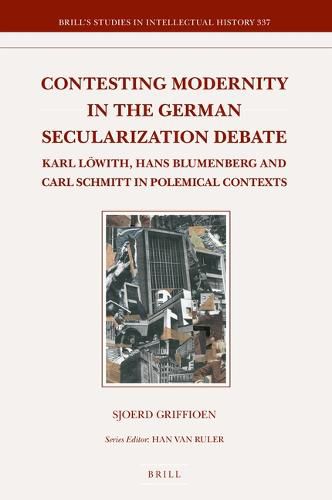Readings Newsletter
Become a Readings Member to make your shopping experience even easier.
Sign in or sign up for free!
You’re not far away from qualifying for FREE standard shipping within Australia
You’ve qualified for FREE standard shipping within Australia
The cart is loading…






In Contesting Modernity in the German Secularization Debate, Sjoerd Griffioen investigates the polemics between Karl Loewith, Hans Blumenberg and Carl Schmitt on the role of religion in modernity. He analyzes their contributions to the development of the broader German secularization debate between the 1950s and 1980s. As this development is traced, special attention is paid to how after 1968 this debate increasingly centered on Schmitt’s notion of political theology and its appropriation by the Left. This is evinced in the work of Jacob Taubes, who is opposed by Odo Marquard, assuming a Blumenbergian-secularist position in this new political landscape. Griffioen concludes with a methodological reflection on the value of ‘Geistesgeschichte’ and by identifying parallels with the contemporary discourse of postsecularism.
$9.00 standard shipping within Australia
FREE standard shipping within Australia for orders over $100.00
Express & International shipping calculated at checkout
In Contesting Modernity in the German Secularization Debate, Sjoerd Griffioen investigates the polemics between Karl Loewith, Hans Blumenberg and Carl Schmitt on the role of religion in modernity. He analyzes their contributions to the development of the broader German secularization debate between the 1950s and 1980s. As this development is traced, special attention is paid to how after 1968 this debate increasingly centered on Schmitt’s notion of political theology and its appropriation by the Left. This is evinced in the work of Jacob Taubes, who is opposed by Odo Marquard, assuming a Blumenbergian-secularist position in this new political landscape. Griffioen concludes with a methodological reflection on the value of ‘Geistesgeschichte’ and by identifying parallels with the contemporary discourse of postsecularism.